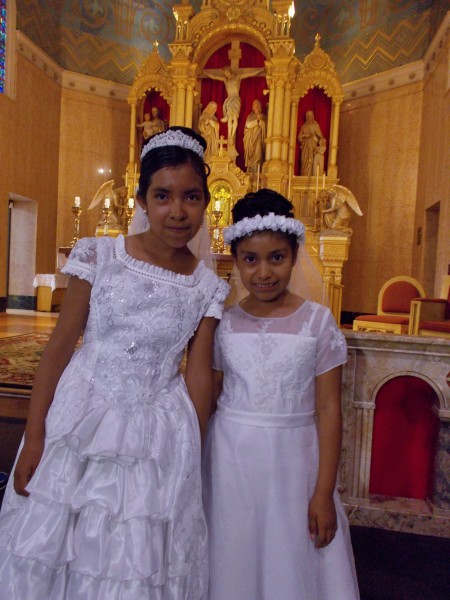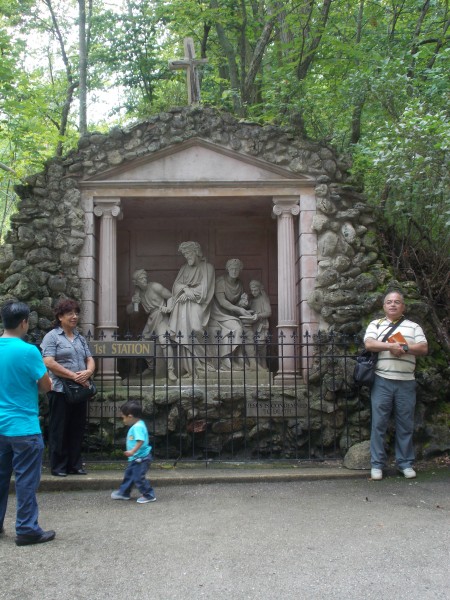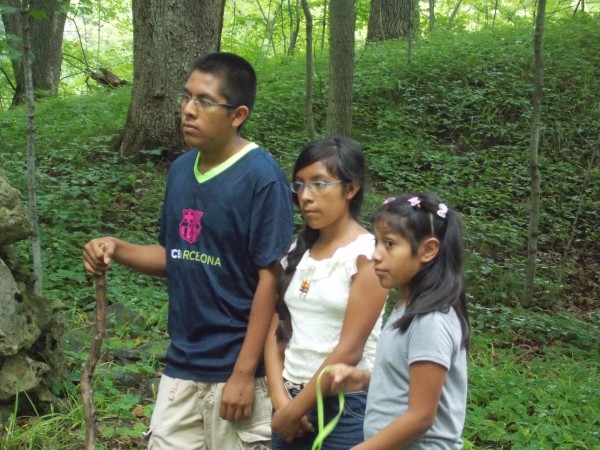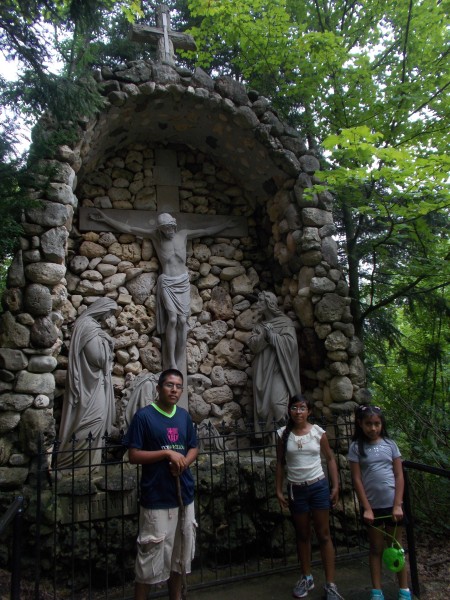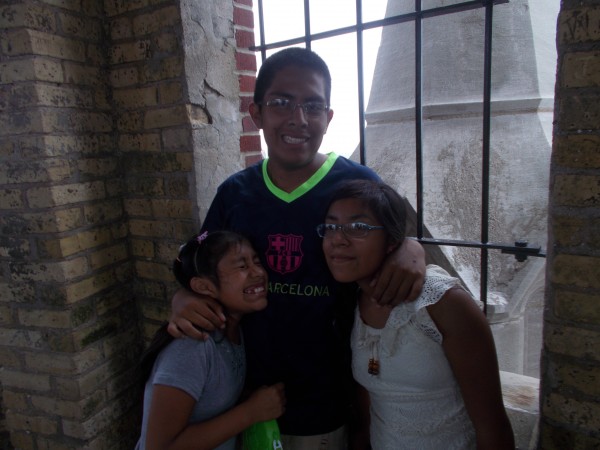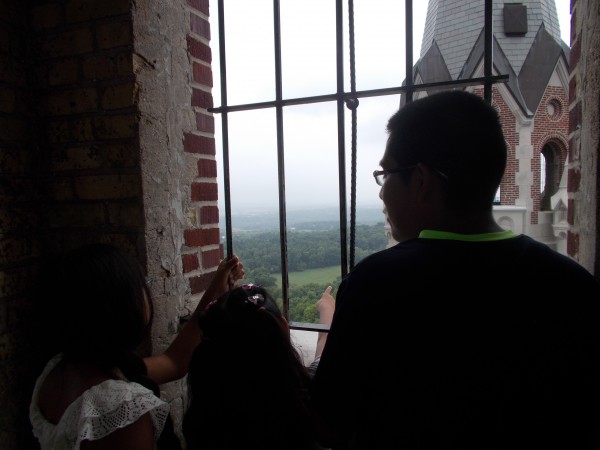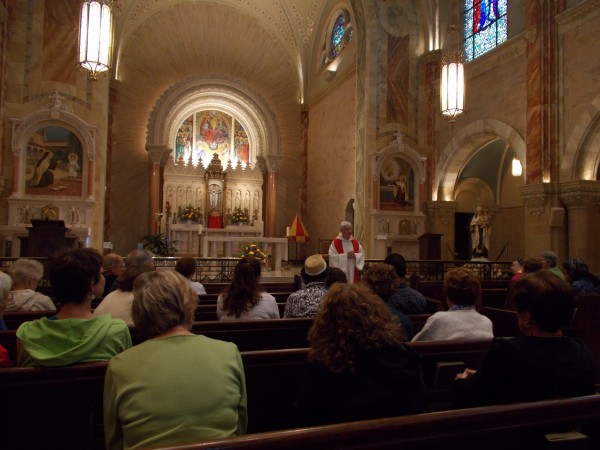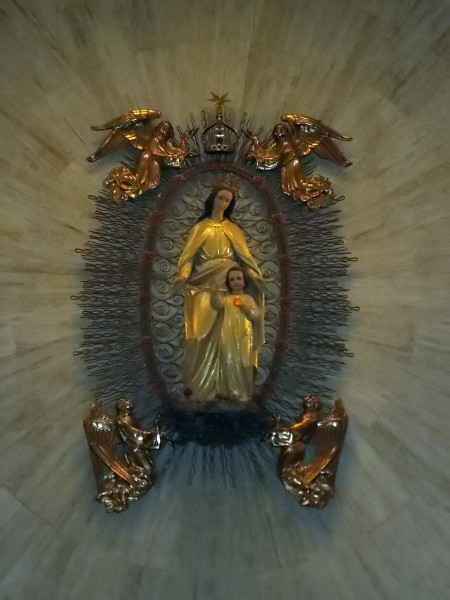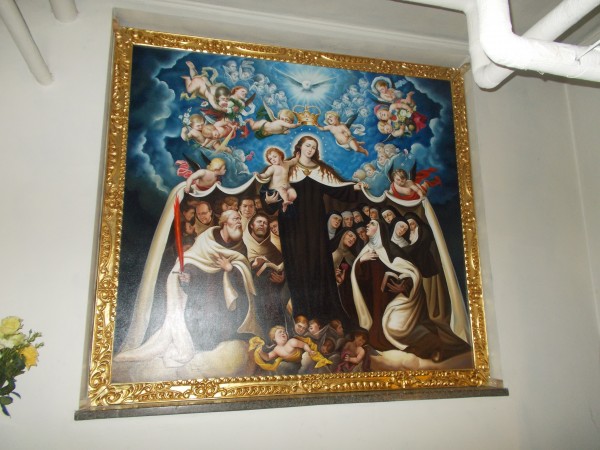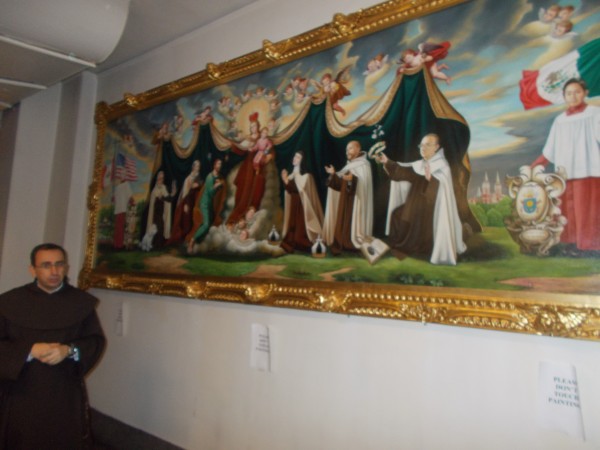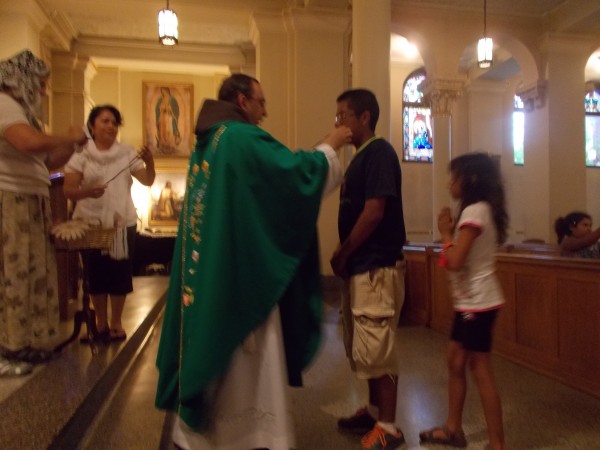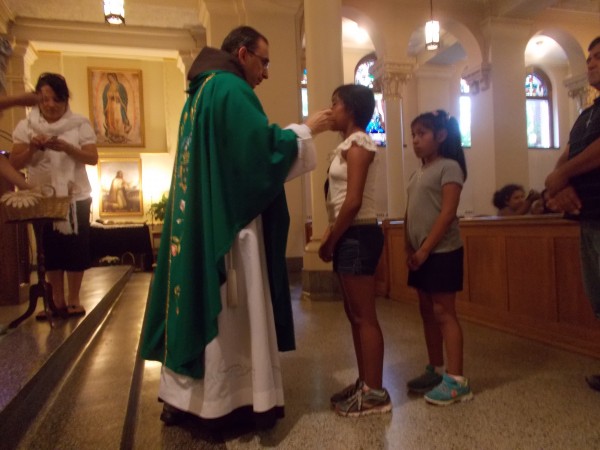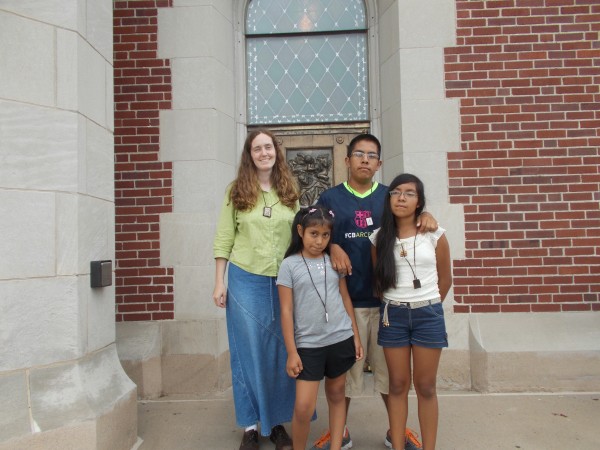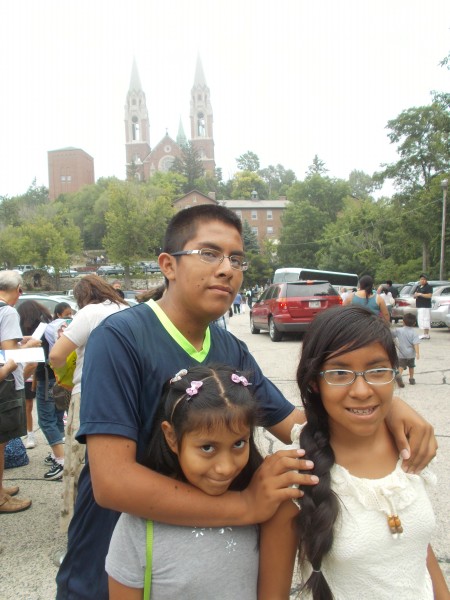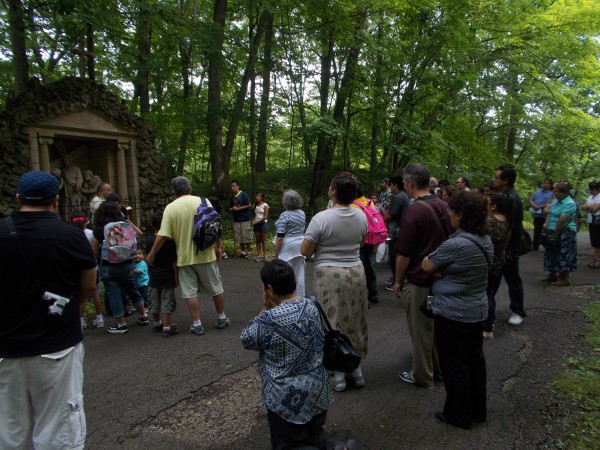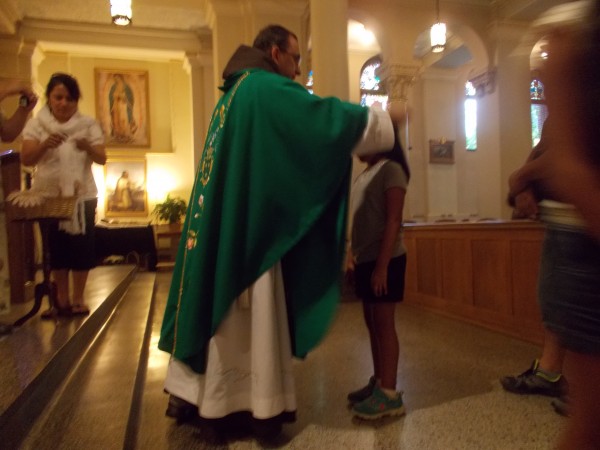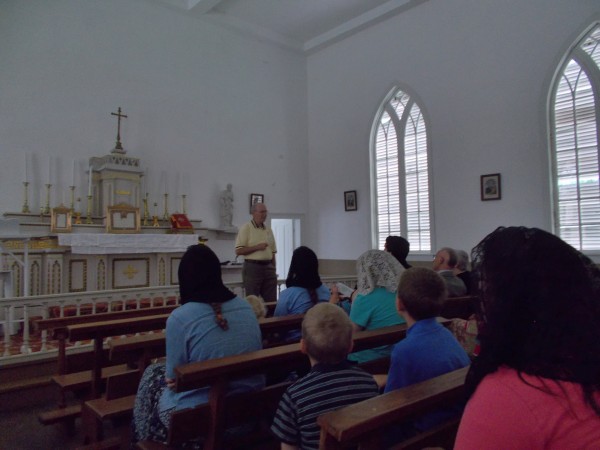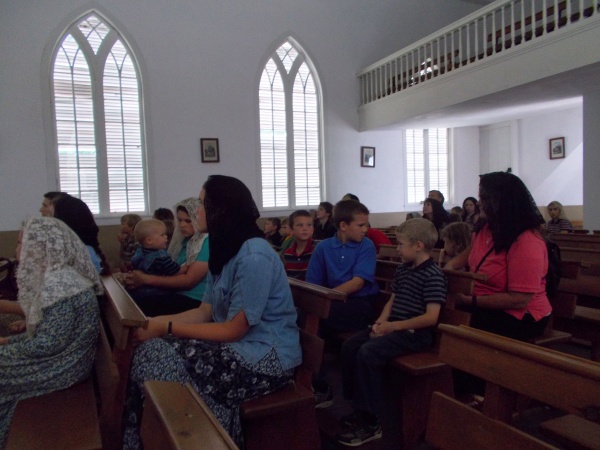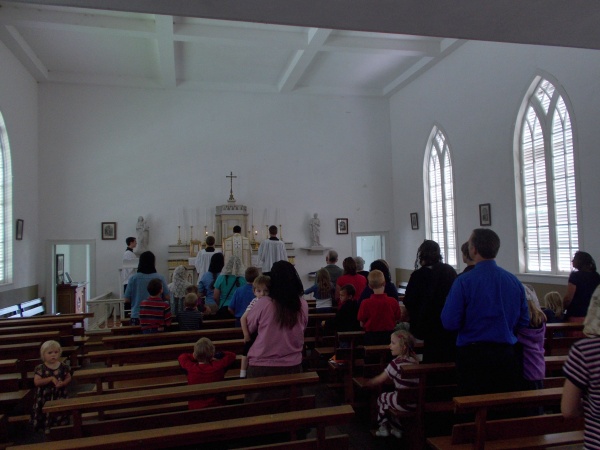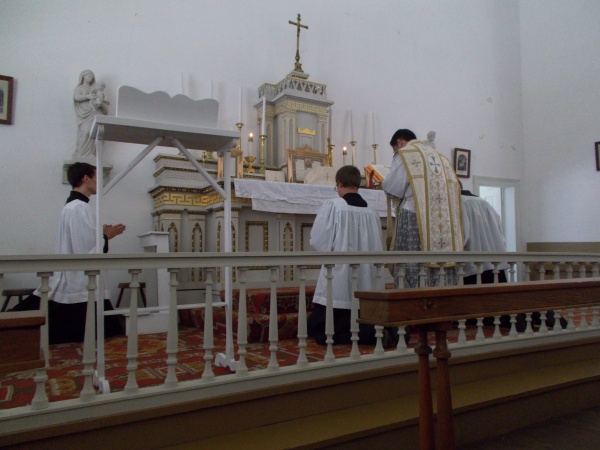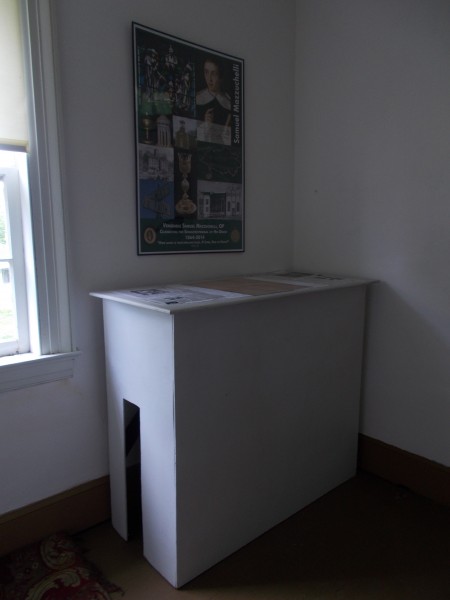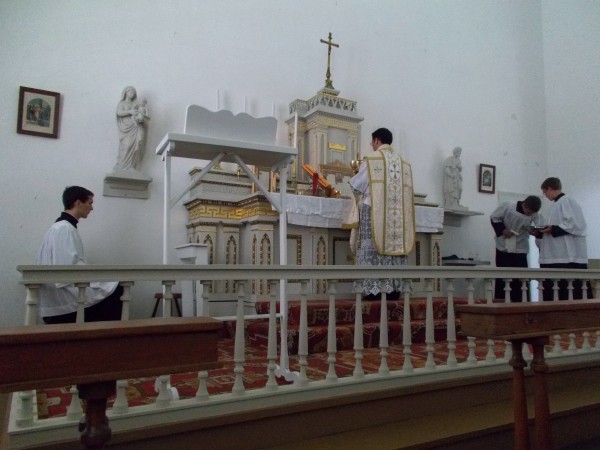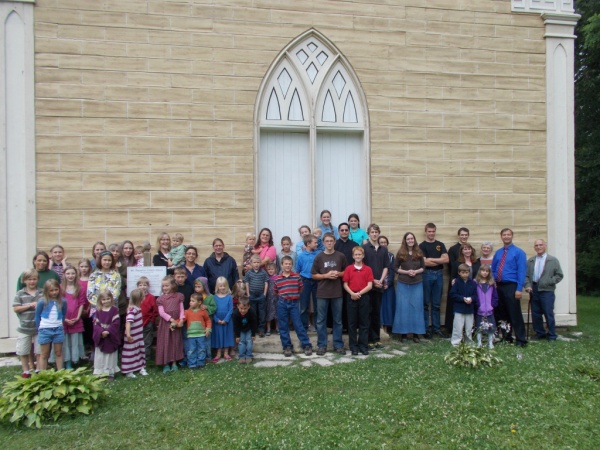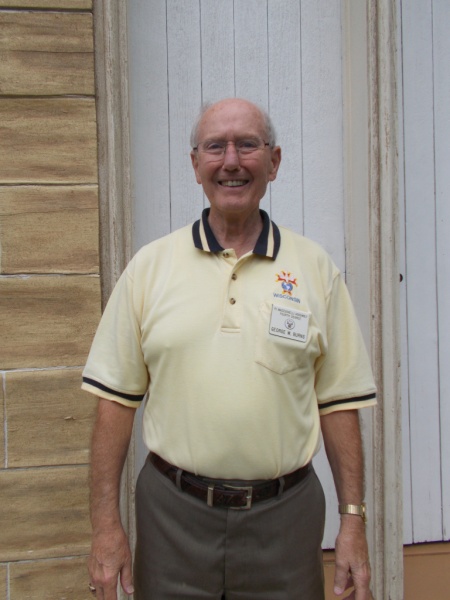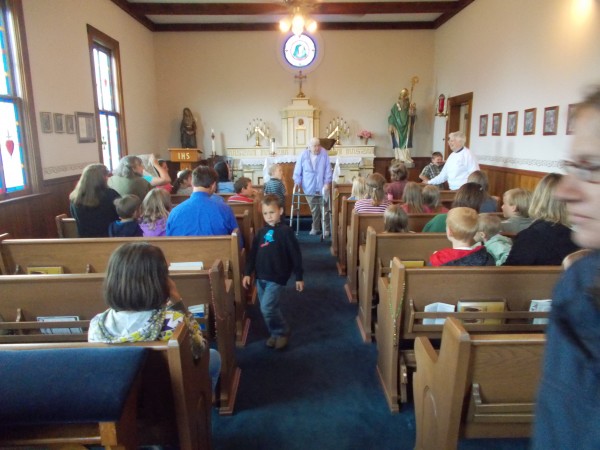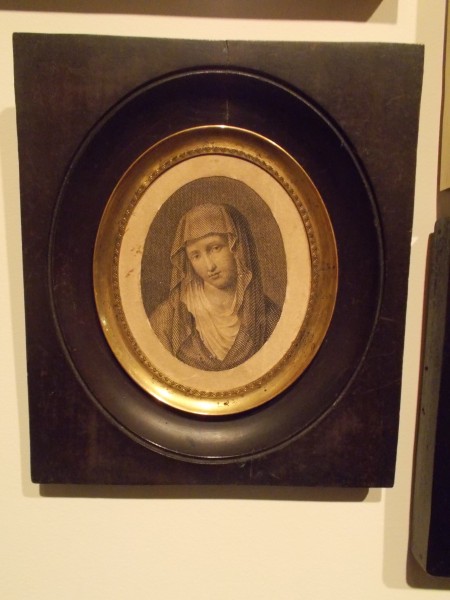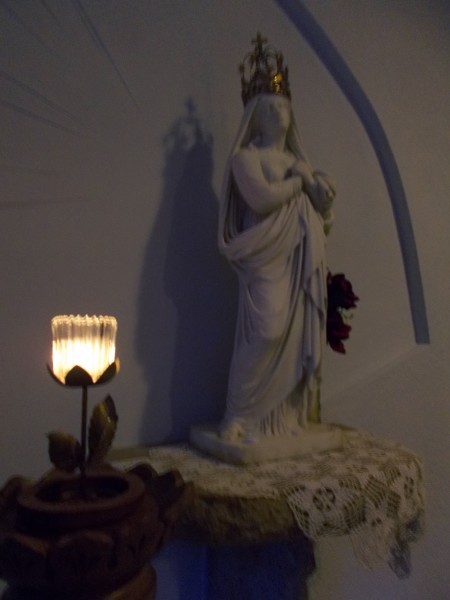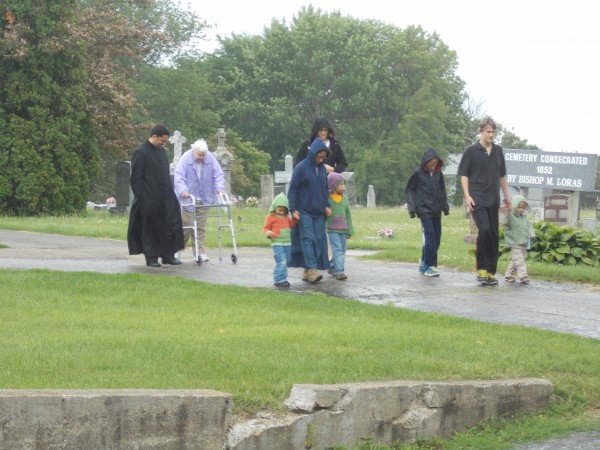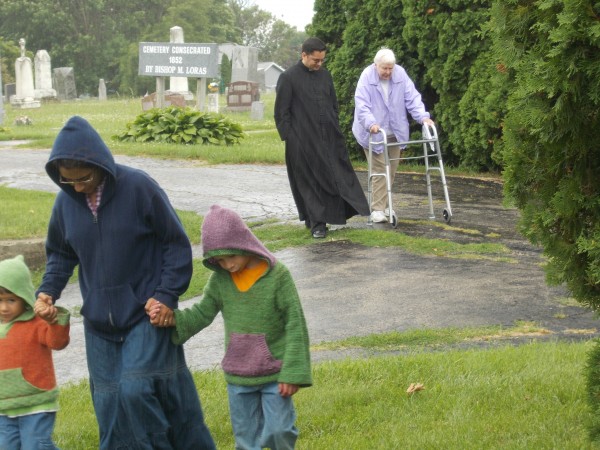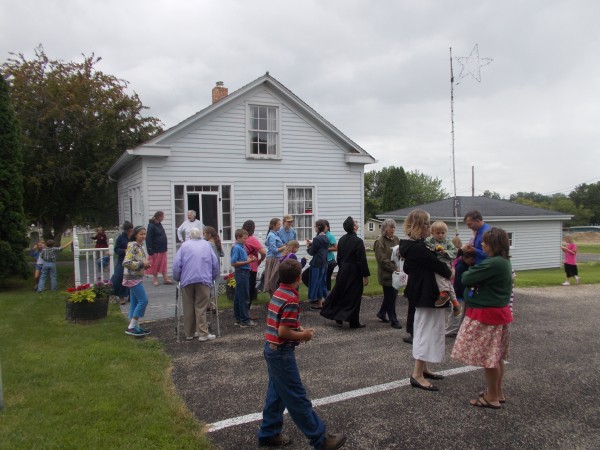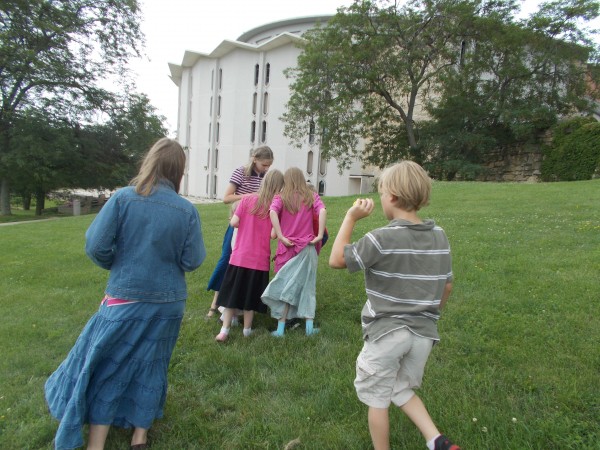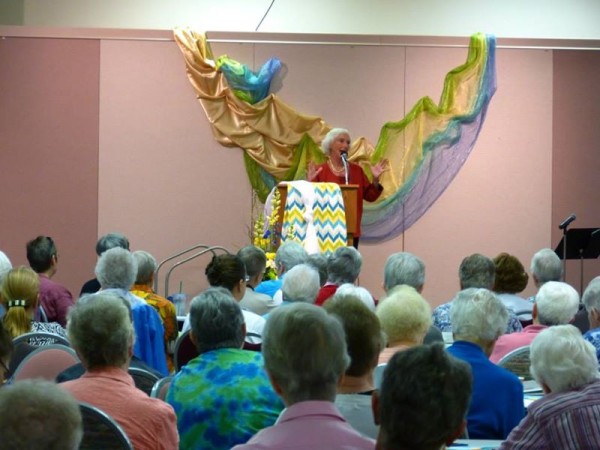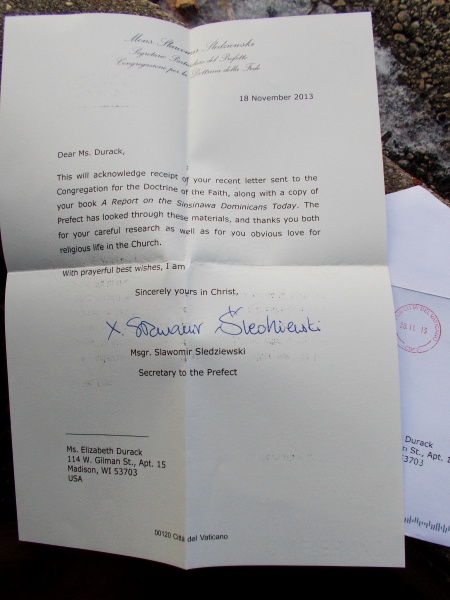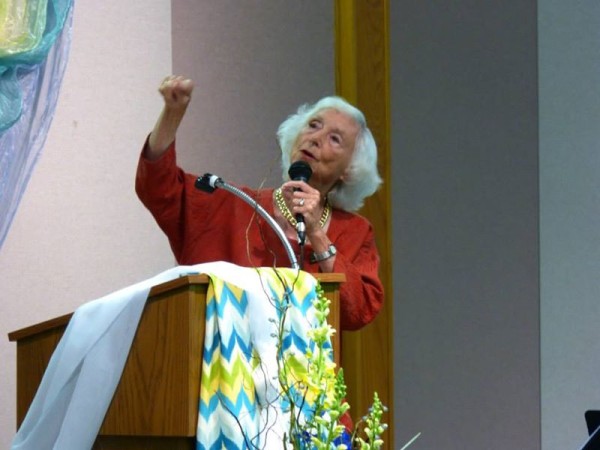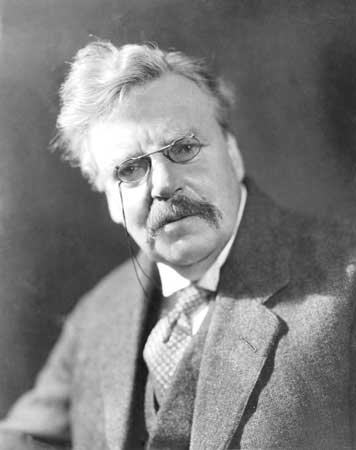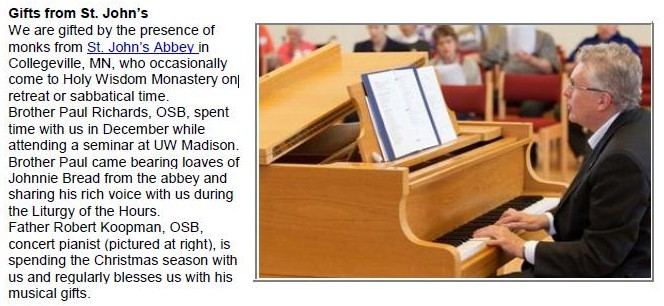
[Update: Phyllis Zagano has made some comments below the article in reply. Also, Father John Zuhlsdorf has posted about this on his blog, and his commenters, particularly Father Augustine Thompson, O.P. offer some useful input over there. Zagano has not replied to an email inquiry about whether Fr. Augustine’s interpretation is correct, of her meaning in denying Jesus conferred Holy Orders on the apostles at the last supper.]
So, I found out some time in mid May that there was going to be a free internet course on the topic of “Women Deacons: Past, Present, Future” led by Phyllis Zagano, a writer for the dissident publication National Catholic Reporter and a Religious Studies faculty member at Hofstra University, which has a Catholic Studies program.
I am very interested in this topic, though my firm and considered opinion is that the Church has no authority whatsoever to confer sacramental diaconal ordination on women. Ordinatio Sacerdotalis taught this definitively in regards to priestly ordination (in other words infallibly, which Zagano and others wrongly deny–and yes she did insist to me OS is not infallible teaching) particularly on the basis that Christ chose men only to be his apostles. The Apostles were those on whom he first conferred the fullness of the sacrament of Holy Orders, encompassing all the orders of deacon, priest and bishop, at the Last Supper. If Ordinatio Sacerdotalis is right that only men can be priests because that is Our Lord’s will and His Church is not authorized to do otherwise, then the same logic leads many of us to conclude that it also appears Our Lord desired to confer diaconal ordination on men only (the Apostles, first of all). The uncontested existence of a female role of deaconess in the early Church, similar to deacons but ministering to women, and commissioned by a similar but not necessarily identical ceremony, is not precisely evidence of the sacramentality of that role. Cardinal Muller, Prefect of the CDF, who clearly does not believe there have ever been or ever will be sacramentally ordained women deacons, said last year, “One would have to prove that a specific, non-sacramental ministry for women analogous to that of women deacons in the Early Church was necessary today.” He doesn’t think they are needed; I don’t either.
So I signed up for the course right away. In the first week of June Fr Zuhlsdorf came upon an announcement of the course and also promoted it on his blog. He and Zagano, while alphabetically close, have a long-running… antagonism.
The other faculty listed for the course include Deacon Bill Ditewig and Gary Macy; Ditewig (former USCCB permanent deacons staffer, banned from speaking on Catholic premises in the Diocese of Philadelphia due to his promotion of women deacons) stated in a comment on Father Z’s blog that he and Macy are not involved in the course but permitted Zagano to use their videos and writings. Besides their lectures, other audiovisual contributions include short statements in favor of “women’s diaconal ordination” including by Sister Sara Butler which sounds like it may be a cherry-picked excerpt from a longer talk (Zagano labels her Doctor Sarah Butler and uses a photo of her in lay clothes and congregation medallion) [Update: Phyllis Zagano states that her colleague Sara Butler gave permission to use the audio clip and supplied the photograph… but more about Sister Sara, who does not think exactly like Phyllis Zagano, at the end of the post] who thinks women deacons can be complementary to men deacons (she is the author of a book upholding the teaching that the Church cannot ordain women priests, and once gave a talk in the chancery auditorium of the Diocese of Madison on that topic which I attended. I remember she asked for a show of hands by the large audience the result of which seemed to surprise her: the clear majority felt that the main, strongest reason why only men can be priests is because a priest is an image of Christ who is the image of the Father and is the Bridegroom of the Church, whereas her opinion and that of a lesser number of the audience was that it was mainly because Jesus had simply opted for men only as apostles), and the rambling Dr Dennis Doyle of the University of Dayton who basically just endorses that it is “necessary”.
The teaching assistants listed for the online course seem to be mostly Hofstra University folks, though Professor Zagano stated to me that the course, which is announced on her faculty pages on the Hofstra website, is not part of the Hofstra Catholic Studies program. The actual management of the course on women deacons appears to be mainly by Phyllis Zagano and Anne Southwood, the Voice of the Faithful national Treasurer, also listed on the VOTF site as the contact person for “Universal Church Reform Initiatves”, whom Zagano cc’ed in email to me. [Update: Phyllis Zagano says Southwood, whose role in VOTF she does not contest, was the teaching assistant for one of the three discussion boards for the course, the one I was assigned to.] It is possible the Women Deacons course may have had its genesis in the milieu of the VOTF activist group, based on the minutes of this VOTF board of trustees meeting. [Update: although a program by Zagano with the same title has been promoted by VOTF and one of their national leaders is a teaching assistant for the online course, and Zagano used her Hofstra faculty web pages to promote this course, Phyllis Zagano states in a comment on this post that “the online seminar… has nothing to do with VOTF or the Hofstra Catholic Studies Program.”]
I have been far more busy for the last few weeks than I had anticipated (particularly due to participation in an evangelization effort of my parish), so although I logged into the course a few times and watched parts of some videos that I confess were kind of hard to get interested in, it was only almost 4 weeks into the course that I figured I would venture onto the discussion board. I posted some straightforwardly and not uncharitable expressions of what I believe as a Catholic.
This got a [fairly neutral] discussion board reply from Anne Southwood, and then an email note from Zagano objecting and complaining I hadn’t looked at the course materials and warning me it is not a blog (the only reason I could figure why she said this was that I had given my location as Madison, WI and that combined with my disbelief in women deacons made her think I might have some connection with Fr Z–indeed I do know and esteem him). And on the discussion board she leapt into debating everything I said, even, bafflingly, my belief that Jesus conferred the Sacrament of Orders on the Apostles when he said “do this in memory of me.” Professor Zagano really adamantly didn’t agree with that, and when I brought up the fact the Council of Trent said “If anyone says that by those words, ‘Do this for a commemoration of me,’ Christ did not institute the Apostles priests; or did not ordain that they and other priests should offer His own body and blood, let him be anathema” she insisted repeatedly that this refers to the institution of the Eucharist but not the Sacrament of Holy Orders, about which Phyllis Zagano says to me in her latest email, “No one is doubting Jesus’ institution of Eucharist; this is not the same as ordination.” And according to her the Sacrament of Holy Orders originated in the 13th c?! Yet when there is record of laying hands on women in the early Church they were sacramentally ordained deacons?! She also insists all people can receive all sacraments unless prevented by canon law or natural law (I tried to reply sacraments use signs and I am personally convinced a man is the necessary sign for Holy Orders, an image of Christ who is the image of the Father). I could not entirely get a handle on what it is she believes, she was like someone who could not be reasoned with, the conversation made me grateful not to be a “theologian” but just a normal Catholic with fairly simple logical beliefs.
Professor Zagano responded to my protestation that I did not buy the books for the course because I am poor by offering to send them to me. That’s kind of her honestly–I said she may do so and gave my address and I would look at them. And because she was protesting that John Cardinal O’Connor and Cardinal Ratzinger encouraged her in researching this topic, I also assured her that while I strongly believe the Church will sooner or later get more specific that there is no such thing as women deacons, until then there is leeway for theological discussion and one cannot call her a heretic about that even though I think it is not prudent to promote the idea considering the serious harms of the broader women’s ordination movement. I also offered to send her my book A Report on the Sinsinawa Dominicans Today which I described and said she herself was mentioned in it in passing, and that when I sent this book to Cardinal Muller he had his secretary write back to me that the Prefect had reviewed the materials I sent and thanked me for my love for the religious life in the Church. Once she read that she banned me from the discussion board–on the grounds that I didn’t view the copious course materials (as if that bothered her so much about other participants–and I did view some of the materials).
Before I got locked out of the discussion, the final week discussion topic just beginning was something like, what are the reasons why women deacons are necessary?
My last email to her is this (it is easy to skip past if you do not want to read the whole thing):
Dear Professor Zagano, I am content that I have tried to participate appropriately and I am sorry that you have not wanted discussion group participation of someone expressing a typical Catholic belief about these matters–what I have said is typical of the beliefs of all the ordinary local Catholics I know, and our priests, and is typical of what we teach the children (I mentioned I am a catechist). I have found your and other participants’ ideas surprising and there was not much opportunity to get to know anyone or talk about that. As I mentioned, time is a huge factor in viewing the substantial amount of seminar materials, I did indeed view some though not necessarily to the end of them!
Below find a reply to the discussion board which I tried to post only to find you have opted to ban me from. I will send you my book and look forward to looking through what you may care to send me.
Dear Professor Zagano, I don’t want to get you wrong, do you believe something different than what I believe as a Catholic that the Sacramental Priesthood of Jesus Christ was conferred on the Apostles at the Last Supper and handed on by them sacramentally in unbroken apostolic succession? It is obvious Catholics do not believe the Sacrament of Holy Orders was invented by scholastic theologians in the 13th century, who wrote about it and developed doctrine further. The Eastern Orthodox and the Catholics both alike have seven sacraments. And the definition I quote from the Council of Trent is quite clearly about Jesus ordaining the apostles as priests at the Last Supper when he said “do this in memory of me”, countering the protestant rejection of that belief and rejection of the Sacrament of Holy Orders. Do you not believe the sacramental grace of Holy Orders was objectively received by the Apostles then and has continued to be passed on in unbroken succession since then? Assertions that at some time hands were laid on women are very different from evidence that women validly received the Sacrament of Orders–like evidence there was a wedding is not always evidence that the Sacrament of Matrimony was validly received, which was my intent in mentioning marriage tribunals.
I am trying to pay attention to what you are saying to me, and your assertion that all people are able to receive all sacraments if not prevented by canon law or natural law helps me to see why we have different ideas about this. Beyond and related to the fact Jesus chose men only to be his 12 Apostles, I believe, like so many other ordinary Catholic believers, that a woman is not the sign necessary for Holy Orders. Let me explain.
Sacraments use signs and make present the grace which they signify. With baptism, water is a necessary sign, with the Eucharist, bread and wine which become the Body and Blood of Christ, with Matrimony there is a man and a woman. With Holy Orders the man himself being ordained is a sign, an image of Christ who is Himself the image of the Father (“he who sees me sees the Father”), and who is the Bridegroom of the Church and head of the body the Church. A woman cannot be an image of a father or a bridegroom, and that is not a defect! Indeed in the bride-Church-body she is lovingly united with Christ the head, not cut off at all from the flow of grace, and integrally participating in the worship offered to the Father by Christ. She is not lacking any grace needed by herself or the Church on account of not receiving the Sacrament of Orders! She humanly has a fine capacity for grace (Our Lady was perfectly “full of grace” unlike any other mere human ever, yet without having received the Sacrament of Orders!), but is not able to be the sign that the Sacrament of Orders requires–a man. And you will have to agree, it is not a defect that a woman is not a man! Nor does she have to do everything men do in order to have dignity or be holy! As a Christian she is a member of and as a woman an image of the Church which Vatican II calls the universal sacrament of salvation. It will serve God and our neighbor well if we are lovingly ecclesial women.
Rice cakes and pomegranate juice are not able to be the signs required for valid consecration of the Eucharist. Changes in canon law cannot change that. That is not to denigrate them or call them inedible or unsuitable for Christians. The point is, sacraments use particular signs. I really honestly disbelieve that a woman is the sign suitable to Holy Orders. I say this as a simple believing Catholic, a non theologian, this is my sense of the matter and I accept that you do not agree with me at this time.
Her email replying to this begins in a huff, “The event is not a free-for-all blog-fest…” responds to my comments on the institution of the priesthood “No one is doubting Jesus’ institution of Eucharist; this is not the same as ordination” and ends “I think you need a great deal of time to study the course materials and especially the 2014 ITC document on Sensus fidei. Good luck with your interests.” Free for all blog fest? Is that what my expressions of Catholic beliefs were? Although I have not been blogging much lately and quite honestly had no intentions related to blogging, since I have been ejected from the discussion board I now do take the idea from her to blog.
I had a strange “chaotic” impression of Phyllis Zagano‘s theological thinking. The Faith is orderly and beautifully rational… until you start to mess with it or feel like you have to make it up yourself. After 8am Saturday Mass we pray the Stations of the Cross each week, and I took the opportunity today to ask other Catholics present if they ever heard of a Catholic denying that Jesus conferred Holy Orders on the Apostles when he said “do this in memory of me.” They said no, and one woman said, “that doesn’t even make sense!” and added, “we should pray for her.” [Update: after Sunday Mass I also asked our permanent deacon at the Cathedral Parish, Ray Lukasec, about this. He was surprised by the question and he too said that no, he had never heard of any Catholics denying that Jesus conferred the Sacrament of Holy Orders on the Apostles at the Last Supper when he said “do this in memory of me”,–since, he said firmly, that is what the Church teaches. He also agreed the high likelihood is that the same reasoning of Ordinatio Sacerdotalis that the Church lacks authority for sacramental ordination of women will eventually be explicitly extended to the question of women deacons.]
The sensus fidei–who has it? Does it belong to me or you or him or her? We need faith enlightening sound reason, and to think with the Church, “For the Church is, by the will of Christ, teacher of the truth” according to Vatican II. The ITC document concludes, “The sensus fidei is closely related to the ‘infallibilitas in credendo’ that the Church as a whole has as a believing ‘subject’ making its pilgrim way in history.”
Why do practically all believers in women’s ordination seem to have different basic beliefs about the Sacrament of Holy Orders than the rest of us? The one who believes in some form that women deacons might be possible and seems most soundly orthodox is one whom I mentioned is in fact featured in an audio clip in Phyllis Zagano’s Women Deacons online course SEEMING to endorse sacramental women deacons, Sister Sara Butler (they know each other and have discussed these things in person; Dr Gary Macy’s summary reveals “Butler concluded that the evidence did not support the revival of an ordained deaconate for women, but that there was no obstacle to an unordained ministry of women.”), who believes female deacons were never identical with male deacons, says women can’t simply be ordained into the current Permanent Diaconate, and isn’t an activist for female ordination. Sister Sara Butler further says, “Women want to have the right to exercise jurisdiction and make decisions, and that has always been tied for centuries to ordination. People like Phyllis Zagano want to be able to preach and be judges in the canonical tribunal. They want power, to put it boldly. They don’t think men alone should exercise this kind of office. It seems clear to me the Lord himself gave it to men, used a man as a model for it and it’s a male responsibility, not some elite privilege.”
A true and loving bride of Christ is not in competition with Him or His deacons, priests and bishops. The Church is the bride of Christ, and how could I believe the sensus fidei of the Church would assert the “necessity” of female deacons?
Oh why do I bother, Professor Zagano will never pass me in this course. I am no theologian.

